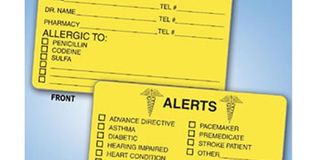Medical cards you should always have as you travel

When travelling, there are things we are told to carry along with us. These include identity cards for easy identification, a passport in case a person is going out of the country and a permit when driving.
When travelling, there are things we are told to carry along with us. These include identity cards for easy identification, a passport in case a person is going out of the country and a permit when driving. However, persons on certain medication are also encouraged to carry along drug cards or papers stating their medical information.
Steroid treatment card
Steroids are often given to people with asthma or those with autoimmune (condition in which the body is destroying its own cells) diseases. The card states how the steroid can be administered and in what quantities. A patient should therefore move with it, and show it to any doctor or nurse who will treat them wherever they will be.
Diabetes care card
The card should state that the holder is diabetic and it should also have emergency phone contacts that can be used. It should also state that if one is acting strangely or cannot be awakened, it could mean that the person’s blood sugar is low. The card should further indicate that if a diabetic person can swallow, they ought to be given fruit juice or other sources of sugar.
If however, the patient does not improve, then a doctor should be contacted immediately and the sugar treatment repeated. The patient should not be given anything if they cannot be awakened or cannot swallow. The card should also state the name of the medication that a person is taking and in what quantities.
Asthma care card
Like the others, an asthma card bears the holder’s name, age, address and emergency phone contacts, including that of the doctors or health facilities. It could also include a list of the things that trigger an attack, instructions on what to do when the person suffers an attack, medications that should be given and the quantities. In case you do not have such cards, it is not wrong to ask your healthcare giver for one, since the information may come in handy during an emergency.




